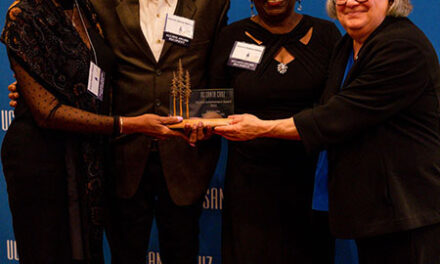
Altogether, we developed four themes that provide insight into the perceptions and experiences of IPV among women with disabilities who have been victims or survivors of IPV in Sweden.
Multiple abuse by multiple abusers, over time
He never hit me in the face or body, but he is very harsh, manipulative, domineering, abusive, uses ugly words, taunts, and now financial violence […] I had been dependent on my ex-husband a lot due to my hearing impairment he took over everything about finances in general. (Ebba)
Yes. I met a man I became pregnant with. He subjected me to attempted rape. (Ulla)
For him [my ex], it [helping and supporting me] wasn’t important. I have a hearing aid, so it gets hot, and it itches. When I got stressed, it got even worse as I fiddled so much and couldn’t get it in, then it went too far into my ear […]. At night, I screamed in pain, I said to him: “Can you call [the healthcare center]? It hurts so much,” but he said: “No, it will be fine.” I said: “Call! help me.” He didn’t. (Ebba)
The three quotes above are examples of how the women with disabilities in this study were exposed to multiple forms of abuse, comprising financial, sexual, and psychological forms. Financial abuse entailed, for example, intimate partners taking advantage of women’s disability status to bypass them, navigate the system, access their disability allowance, and “empty the accounts” without their consent. As Ebba’s first quote shows, partners took advantage of the women’s dependence on them as an avenue to control their finances.
Although the women in this study experienced several forms of abuse from multiple abusers, psychological abuse, and neglect were especially common across their narrations, as the second quote from Ebba shows. Psychological abuse was exerted through gaslighting, invasion of privacy and violation of personal belongings. Neglect, on the other hand, was through refusal to help. The women interviewed vividly described instances of being subjected to “wrong treatment,” enduring “threats and intimidation,” being left alone without support at home and labelled as incapable of fulfilling their responsibilities due to their disabilities.
As well as experiencing different types of violence, the women in this study also experienced abuse from different types of abusers:
My god man treated me bad and exposed me to debts. After that god man, I got a 75-year-old man. He treated me bad too. He was so controlling […]. It didn’t work at all. It was completely crazy. (Ulla)
When I was 16 years old, it was a friend of the family who sexually abused me […] and then later a male staff member told me to undress and so on, in my residence, and we were alone in the room, forcing me to hug several times. (Jenny)
As Ulla describes in the quote above, her “god man,” who is an individual assigned by social services to assist people with disabilities in making decisions and navigating challenges related to their disabilities, can instead become controlling, inflicting bad treatment, abuse, and violence. The women interviewed were also exposed to violence from a wide array of people with whom they had close relationships, such as partners, ex-partners, and parents. Other people, such as friends and colleagues who accessed these women’s intimate spaces, also overstepped their roles, took advantage of these women’s disabilities, and ended up perpetrating abuse, as Jenny described in the quote above.
Finally, the women described how their experiences of violence and abuse occurred over time.
My mom did it. It had been, not punches, but slaps, being pushed into furniture very hard. When I was little, she held my arms so tightly that I got bruises. It stopped when I got older and could resist. (Pia)
In the above quote, Pia described having experienced abuse from her mother, whom she expected to be her source of help and support. She was not an exception; among the participants, some women talked about experiences of violence that started when they were children and continued throughout their youth and adulthood.
In summary, the women described experiences of multiple forms of violence by multiple perpetrators and for prolonged durations. Among the different forms of abuse, psychological abuse was perceived as particularly harmful, as well as being “hard to prove.” We turn to this in the next theme.
Psychological abuse—harmful, but neglected and difficult to prove
I guess I could go to the police with them [episodes of psychological abuse], but as many say, it usually doesn’t get picked up or it’s not taken further and so on, and I’ve heard others who’ve said one should perhaps not compare and say that one [form of abuse] is worse, but there are some who’ve been more physically abused than I faced in that relationship, for that person it has just been taken seriously […] Yes, the physical, it’s like, it still heals like relatively often, maybe a little faster than the psychological, which can often be there. (Sofia)
In terms of pervasiveness, the interviewed women perceived psychological abuse as more harmful than physical violence, which they said, “heals faster.” Psychological abuse was described as “invisible” and as having a greater impact on an individual’s health and well-being, as Sofia explained in the quotation above. In addition, psychological abuse was perceived as brutal and requiring “more help” because, in Ebba’s words, it makes one “not want to live.” Despite the perceived pervasiveness and severity of psychological abuse, the women in this study also perceived psychological abuse as neglected and/or not taken seriously by the services and support institutions. Services and support institutions here refer to the police, healthcare, and social services.
When it came to my relationship, I never sought any support because he never hit me. So, I never had concrete examples. I knew it shouldn’t be like that. But he never crossed a line, to become clear for me to report [….] then I just realized that I shouldn’t tell everything. This is the typical situation that I hear many people are in. In my case, it was: “he never hits [you], so what’s the problem?” He just got a little angry. Yes, he broke the wall next to my head, but he didn’t hit me. He hit the wall. (Mona)
When can you report to the police? Sometimes I said: “Beat me, so I can report you to the police,” but he never did. He knew it. That was the hardest part of it all. (Ebba)
The above quotes describe how psychological abuse is not considered very important, while hitting, beating, and any other form of physical injury that is clearly visible was/is considered serious and qualified as having “crossed the line” and, most importantly, becomes a motivation for seeking support. If violence was not physical, there was the perception that it would not be taken seriously by the support institutions that had the liberty to decide whether a case had proof of abuse or not. This, in turn, discouraged the women from seeking help when they had not experienced that type of violence, as shared by Mona in the quote above. The frustration of psychological abuse not being taken seriously due to the lack of physical proof led the participants to seek such proof and question whether they should actually seek physical abuse. From Ebba’s quote above, we want to argue that this (asking to be beaten) reflects the frustrations of psychological abuse requiring proof.
According to these women’s perspectives, Sweden lacks laws to prosecute psychological abusers; thus, the support institutions do not have legal frameworks consisting of laws and rules to punish such abusers. But it was not only a matter of lacking laws to punish this type of violence; the participants also perceived society at large as (in Lena’s words) “talking a lot about the physical violence but forgetting to talk about the psychological abuse which [society] considers quite a taboo.” They called for strategies to start a discussion on the importance of taking psychological abuse seriously as an important issue and not as a “taboo” as it is now viewed.
Even though they were faced with suspicion and the need to prove psychological abuse, all the participants had managed to quit their abusive relationships. However, the violence continued after leaving their abusers, as we illustrate in the next theme.
Abuse does not end with separation
We have children together; things must be bought. Then I suggested to him that we can pay together and then I pay a percentage of my salary. “No, 50/50,” he insists, “I have no obligation to support you.” “It’s not about me, it’s about the children,” I said. He doesn’t understand anything. He won’t stop the harassment. (Ebba)
Even though we’d agreed that I should have our boy, he’s kept the boy and gone underground. (Ingrid)
All the women in this study had ended the abusive relationships, either through separation or divorce. However, despite the physical separation, they still faced ongoing psychological abuse from their former intimate partners. Those with co-parenting responsibilities and unstable financial situations endured continued financial frustrations and control, as the abusers exploited these circumstances to exert power and make them feel powerless. For instance, even though it was known that these women only worked part-time, their ex-partners insisted on a 50/50 financial arrangement for childcare as mandated by the law. However, it is worth noting that the same law allows parents to make special arrangements based on their mutual agreement to cater to their children’s needs. This situation gave the abusers more power to continue their financial control and intimidation, as described by Ebba above.
Ex-partners made co-parenting difficult and continued to exert control and intimidation. As Ingrid stated above, she was denied the right to be with her child even after an agreement during separation, that co-parenting would be made possible as specified by the law. The perpetrators used co-parenting as an avenue to continue exercising psychological abuse.
Some ex-partners continued to take advantage of the women’s disabilities. For example, they made it difficult to sustain a conversation. In Ebba’s case, as she shared her personal experience below, her ex-husband continued to take advantage of her hearing impairment, dominated the conversation, and never gave her an opportunity to be heard.
So, I called him, and it was almost impossible to talk to him. It’s not possible to talk on the phone with him. He totally runs me over. (Ebba)
The ex-partners without a disability positioned themselves as the ones with a superior voice and used this to exert power and control through communication, illustrated by their domineering manner during conversations. Other ex-partners could not handle rejection. They perceived that a disabled woman should not leave a relationship, and thus turned to digital abuse; sending out embarrassing and untrue online texts to close networks indicating that she was “single,” “looking for a boyfriend” (Jenny) or sharing her “phone number with other guys” (Jenny).
Having experienced multiple forms of violence from multiple abusers for prolonged periods of time, faced with suspicion and the need to prove violence, managing to leave their abusive relationships, and then still having to endure abuse even after separation, the women in this study retrospectively recollected how they had coped, including attempts to resist such abusive partners. These women were doing something about their situation, both during and after the abusive process, which we explain in the next theme.
Surviving abusive relationships
I became more and more isolated because I didn’t want to tell [anyone]. I thought it was embarrassing. I had also moved from my city to this guy’s city. Then it was even more that I didn’t want to show [it], I didn’t want to be seen as a failure and that I would have to move back to my city. (Mona)
When I ended up in deep depression, I found tools to process myself. These were the tools I was looking for online as well as, what does a healthy relationship look like? Is it me who’s crazy or this person [the perpetrator] who does things to me when I’ve said, “don’t do that,” and no one else knows that I’ve told him not to do those things? (Lena)
In hindsight, the women narrated how they had survived and navigated through the violent and abusive environment. Their approaches to surviving violence also changed along the way; from their current situation, where they had left their abusive partners (all the participants were separated or divorced at the time of the interviews), they reflected upon the different ways in which they had tried to survive the violence.
One way was to isolate themselves and to seek explanations and reasons for it. This way of surviving violence was related to the shame they felt about being a victim, a way to try to maintain appearances in front of others. Isolation was a way to avoid sharing abusive experiences because it was seen as “embarrassing,” as being a “failure” and different within society, as Mona described her personal experience in the quote above. This way of surviving took a toll on them because they had to continuously limit themselves, the activities they engaged in, and their social contacts. Retrospectively, these participants regretted such moments of isolating themselves and trying to endure the violence. As Ebba put it: “You blame yourself; how did I even allow it…. I’m still ashamed of how I could live with such a man.”
One other way that they survived the violence was by trying to make sense of their situation. They began questioning and comparing information on their own to help them deal with the stress and trauma. They took the initiative to search for on-line resources to support their healing and to prevent themselves from ending up in similar abusive situations again. These resources included information on tools to process self and examples of what a healthy relationship should look like as Lena shared in her quote above.
The women also mentioned a different way of surviving violence, which was through finding an escape from the space of violence, by engaging in activities they considered interesting that relieved the stress. Such endeavors included “writing music to let it flow out as such writing made me feel safe” (Sofia); or writing down the abusive experiences in a bid to just let it all out and get some relief. “Sometimes I went up and wrote a page and a half, just to write it down” (Ebba). Alcohol and other drugs were also a source of relief: “I knew I was drinking way too much. There has never been any doubt that I was aware of it because I used it as incorrect self-medication” (Mona).
Some of the factors that the women described as having enabled them to step up and leave their abusive relationships included support from friends and family, having had enough, doing it for the children’s sake, and having shared experiences with other abused women who had since left their abusive relationships. For instance, Ebba shared her personal experience of how she left the abusive relationship for the sake of her children:
I wanted us to be a family. I wanted us to. […] I didn’t want to divorce for the sake of the children, I protected them. But that wasn’t right, it was wrong. There was more violence. Then I realized that it wasn’t helping my children. I would perish, and the children would not feel good about seeing us use violence and abusive words.




